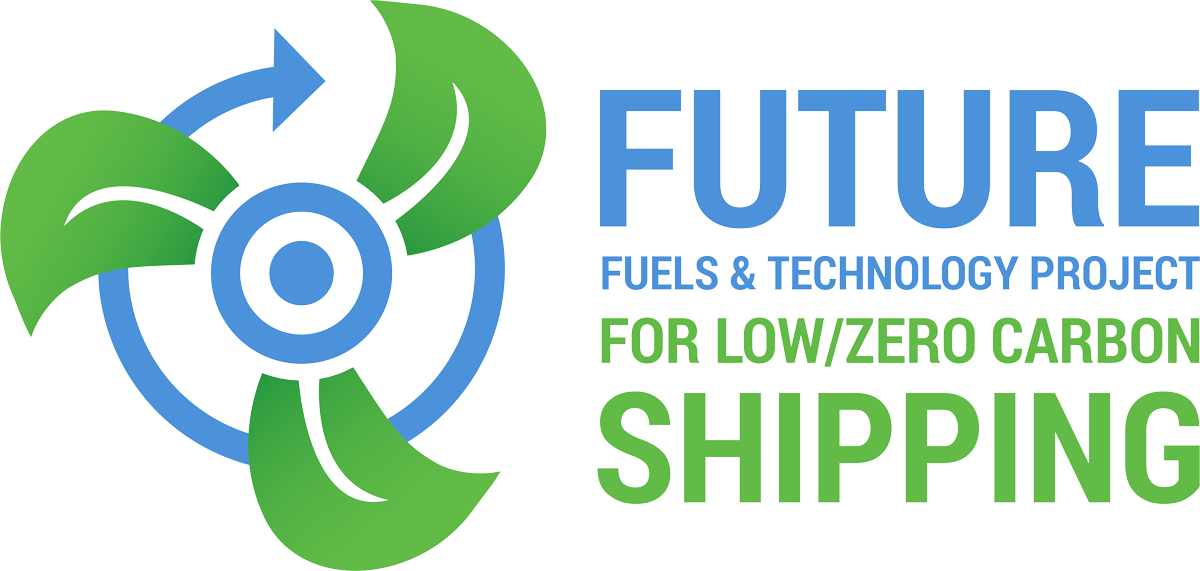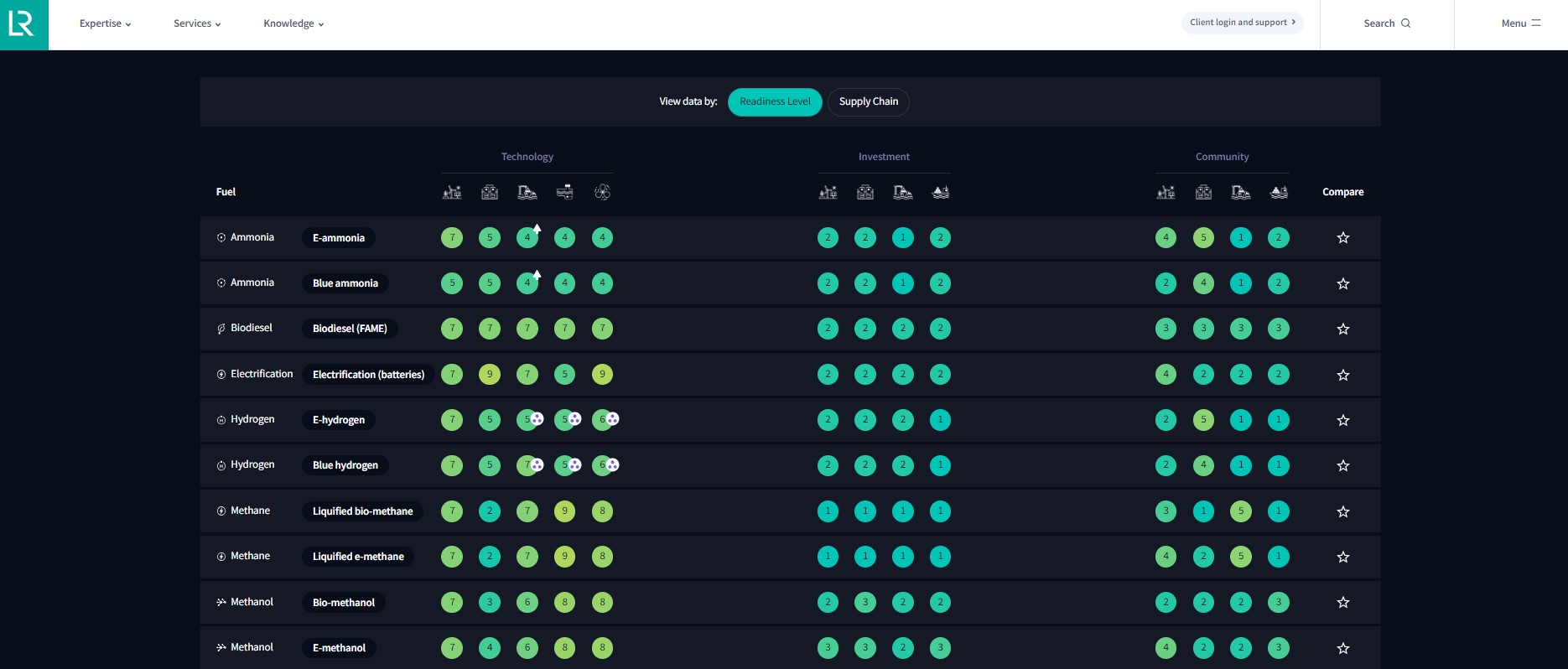
Alternative Fuels
Readiness Level
Explore expertise, readiness levels and data on alternative fuels provided by the Lloyd’s Register Maritime Decarbonisation Hub. The Zero Carbon Fuel Monitor identifies key priorities for fuel supply chain stakeholders to deliver an efficient, safe and sustainable transition to zero-carbon marine fuels. The insight-based assessment of fuels readiness provides the basis for effective decision making as the maritime sector navigates the journey to a decarbonized future.
Ammonia
Ammonia has the benefits of being relatively easy to handle, and with acceptable energy density. However, safety and environmental concerns still need to be addressed.
Biodiesel (Biofuel)
Biodiesel is considered a drop-in fuel, introducing no new safety challenges or risks of environmental contamination, although there are uncertainties around the availability of sustainable feedstock and fuel.
Hydrogen
Hydrogen has a high specific energy density; however safe and practical onboard storage remains a challenge.
Methane
Methane can leverage existing natural gas infrastructure and technology. However, any methane slip poses an environmental risk.
Methanol
Methanol has relatively simply storage requirements, and very low particulate matter emission levels, however a carbon negative supply chain is required to offset the tank-to-wake emissions.







